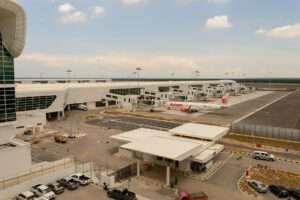Malaysia expands biodiesel usage at KL airport

Plantation and Commodities Minister Johari Abdul Ghani announced that the country will upgrade from the current B10 biodiesel blend — comprising 10% palm-based biodiesel — to B20 for airport ground transport vehicles.
While Malaysia enforces a B10 mandate nationwide, a higher B20 blend is already in place in Labuan, Langkawi, and most of Sarawak, excluding Bintulu.
In comparison, Indonesia, the world’s largest palm oil producer, has implemented a B40 mandate and is exploring a potential move to B50.
“If this pilot project proves successful, we will expand it to other sectors,” Johari said, noting it as part of Malaysia’s long-term commitment to its net-zero emissions target, though he did not specify a timeline for the project’s rollout.
Malaysian Palm Oil Board chairman Mohamad Helmy Othman Basha added that similar biodiesel trials are underway at key ports including North Port Klang, Tanjung Pelepas, Johor Port and Kuching Port.
According to Helmy, palm biodiesel not only reduces reliance on fossil fuels but also uplifts smallholder farmers and local communities involved in the palm oil sector. “This demonstrates that sustainable development and economic growth can progress together, bringing benefits to both the people and the environment,” he said at the launch event.












